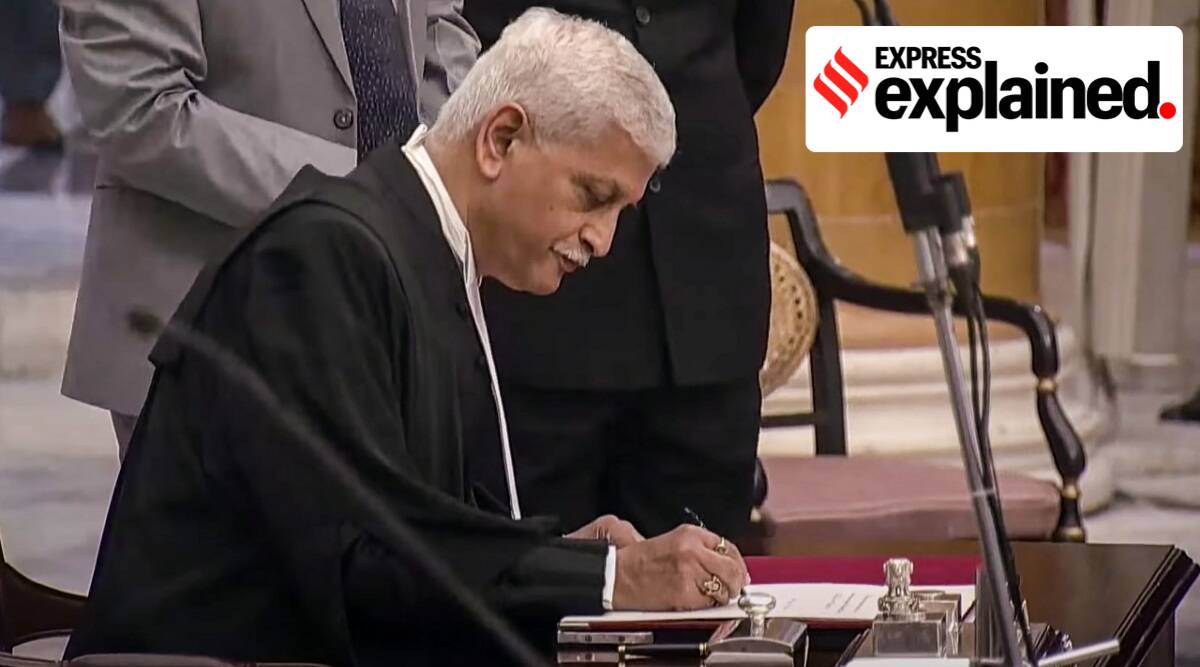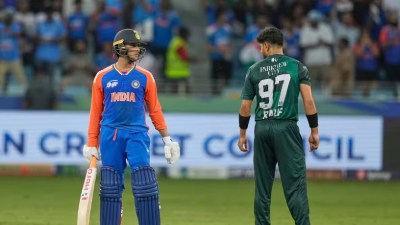Explained: What is a full court meeting, called by the new Chief Justice of India soon after taking charge?
Within hours of taking over, Chief Justice of India U U Lalit called a meeting of the 'full court'. What is this, and when is it held? What is the significance of a full court meeting?
 Justice U U Lalit taking oath as the CJI. (PTI)
Justice U U Lalit taking oath as the CJI. (PTI)Within hours of taking over, the new Chief Justice of India U U Lalit called a meeting of the ‘full court’ Saturday where the judges discussed how to deal with issues relating to listing and backlog of cases.
What is a full court meeting?
A full court meeting literally means one which is attended by all the judges of the court.
When is it held?
There are no written rules dealing with this. As per convention, full-court meetings are called by the Chief Justice of India to discuss issues of importance to the judiciary. The senior designations of practising advocates in the Supreme Court and high courts are also decided during the full court meetings.
What is the significance of a full court meeting?
The basic idea is to take everyone along. Full court meetings are an ideal occasion to arrive at common solutions to deal with problems that beset the country’s legal system and to make any amends, if necessary, in the administrative practices of the court.
How frequently is it held?
As a full court meeting is convened at the discretion of the Chief Justice of India, it does not follow any particular calendar.
Full court meetings have been held many times in the past. In March 2020, it was convened to discuss demands by associations of lawyers to close the court till further notice following the Covid-19 outbreak and its subsequent spread among court staff, and to decide the further steps to be taken.
Also, a full court meeting held on May 7, 1997 decided that “every Judge should make a declaration of all his/her assets in the form of real estate or investment” held in own name or in the name of spouse or any person dependent within a reasonable time and thereafter make a disclosure “whenever any acquisition of a substantial nature is made”.
The meeting resolved that an in-house procedure should be devised by the Hon’ble Chief Justice of India to take suitable remedial action against judges who by their acts of omission or commission do not follow the universally accepted values of judicial life, including those indicated in the “Restatement of Values of Judicial Life” that lays down certain judicial standards and principles to be observed and followed by SC and HC judges.
- 01
- 02
- 03
- 04
- 05






































